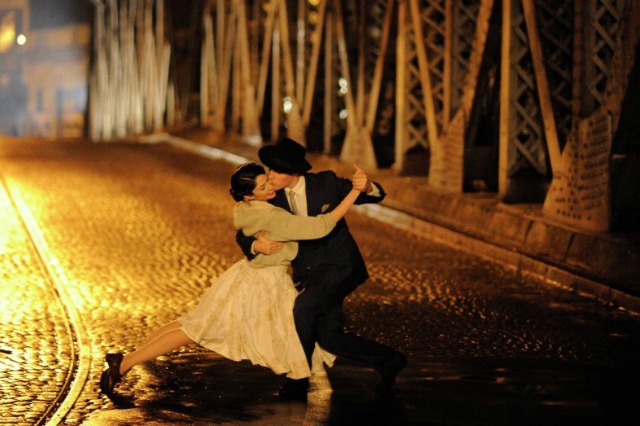Film Fest Wants To Show Chicago Latino Communities 'The Way We Are'
By Joel Wicklund in Arts & Entertainment on Apr 4, 2016 7:40PM

“Our Last Tango” (Photo courtesy of Strand Releasing).
Pepe Vargas didn't mention Donald Trump when we spoke with him about the upcoming 32nd Chicago Latino Film Festival (April 8 to 21), but the festival's founder and executive director certainly positioned his event as a response to negative portrayals of the Latino community in the current political scene.
"We as Latinos need to make a sound statement about our presence here," said Vargas. "We are more than a cheaper labor force. We are a community that has talent. And we use cinema to make the statement, 'Here we are...the way we are.' Not the way people think, following stereotypes. Films really give us the chance to showcase our community the way it is: an international community of many nations, many races, that has a wealth that is limitless."
Vargas, who has overseen the growth of CLFF under the larger umbrella of the International Latino Cultural Center of Chicago, is as tied to the festival's history as Michael Kutza is to the Chicago International Film Festival. Both took their respective festivals from humble beginnings to their current status as major events.
The Chicago Latino Film Festival now shares the same venue as CIFF (AMC's River East 21 Theatres), and Vargas reported last year it drew 40,000 attendees. The Chicago International Film Festival drew over 60,000 for its 2015 edition, but considering CLFF's more limited geographical scope—and that it receives far less media attention—the attendance figure is remarkable.
It's a long way from the first CLFF in 1985, when 500 patrons watched films projected on a concrete wall at St. Augustine College. This year, the festival boasts a schedule of more than 70 features and more than 40 shorts from Argentina, the Dominican Republic, Brazil, Paraguay, Mexico and other nations.
Vargas was very reluctant to single out schedule highlights, noting he wants to encourage people to see as many films as possible. But he did mention a few movies he considered noteworthy.
He called the Argentinean dance film, Our Last Tango (executive-produced by German film legend Wim Wenders) "a great documentary dealing with tango as a cultural and artistic expression." Vargas was also enthusiastic about the Colombian film Land and Shade, a multiple award-winner at last year's Cannes Film Festival, citing the drama about the sugar industry as one reason why "Colombia has lately sort of jumped into prominence in the international [film] arena."
He described Karadima's Forest, a drama about the sex abuse crimes of Chilean priest Fernando Karadima, as "a film that treats its story with a lot of respect and a lot of courage." (Coincidentally, The Club, another Chilean movie about pedophilic priests that impressed us at CIFF, opens at the end of the month at the Gene Siskel Film Center.)
On a more hopeful front, Vargas sang the praises of Club Frontera. "It's a great documentary from Mexico about football [soccer] and how it unites people in a city [Tijuana] that has so many problems with drugs and crime, and gives them hope in life."
Looking over the CLFF schedule, even ravenous film buffs may notice a lot of unfamiliar directors. That's intentional, as the festival has long championed new filmmakers.
"A good part of the festival—a good 50 percent—is new directors," Vargas estimated. "We want to be of service to introduce new voices." He also takes pride in the number of women directors represented. Though he said there is no formal mission to include more female filmmakers, "That is something that we sort of unconsciously, yet consciously, do."
After more than three decades at the helm, the founder's enthusiasm for the festival has not seemed to diminish. Maybe that's because for Vargas, CLFF is much more than a film festival. He sees it as a community statement.
"I live with the belief that the festival is needed," he explained. "We are here because we are needed. See us the way we are. See the whole picture."
The Chicago Latino Film Festival runs from April 8-21. See the full schedule here.